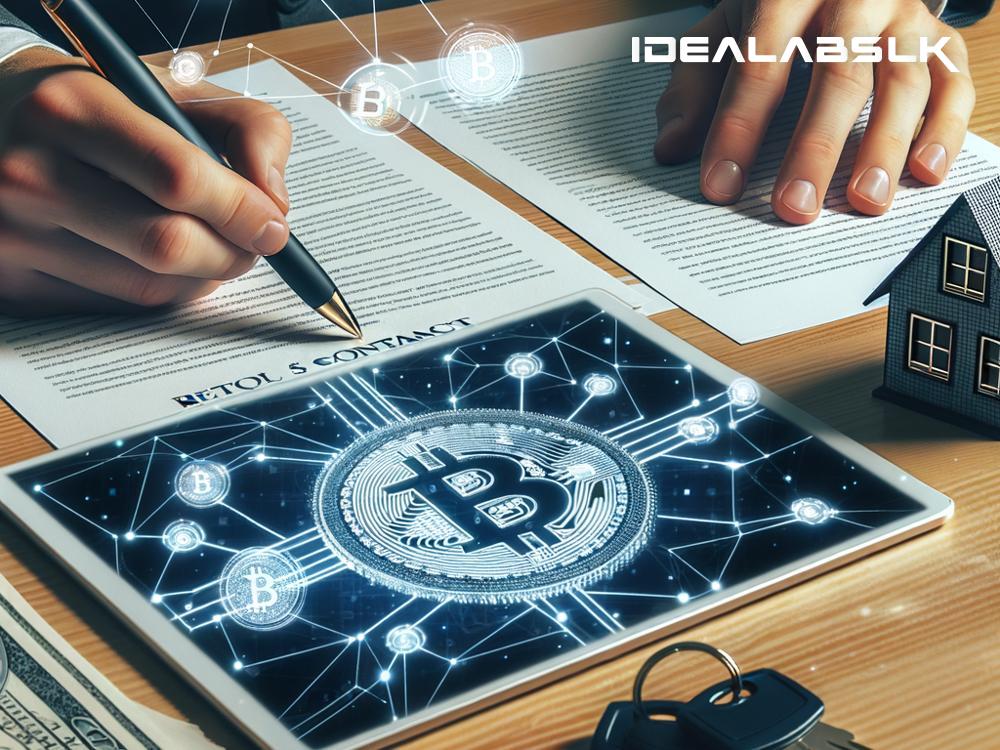Blockchain for Real Estate: Ensuring Legal Certainty in Property Ownership
In the digital age, blockchain technology is promoting major shifts in various industries, and the real estate sector is not left untouched. Traditionally, buying or selling a house has been a lengthy process filled with paperwork, third-party interactions, and a considerable amount of uncertainty. However, blockchain technology is paving the way for a revolution in the real estate world, particularly in ensuring legal certainty in property ownership. But first, let's break down this complex concept into simpler terms.
What is Blockchain?
Imagine a digital ledger that is accessible by multiple people at the same time but is extremely secure and impossible to tamper with. This ledger records transactions in a chain of blocks, with each block containing a transaction's details and a unique code linking it to the previous block. This makes the ledger not just transparent but also highly secure and reliable.
How Does Blockchain Impact Real Estate?
Blockchain technology has the potential to make the process of buying and selling real estate faster, more efficient, and more transparent. Here's how:
- Record Keeping: Traditional property records can be complicated, fragmented, and prone to errors. Blockchain can consolidate these records in a secure digital format, making them easily accessible and clear.
- Smart Contracts: These are self-executing contracts with the terms of the agreement between buyer and seller being directly written into lines of code. Smart contracts automate tasks that are typically completed through paper-based methods, reducing the need for intermediaries and speeding up the transaction process.
- Transparency: The transaction history of a property, including past owners and prices paid, can be stored on a blockchain. This visibility helps reduce fraud and disputes over ownership.
- Efficiency: By cutting out the middlemen, such as banks or lawyers, the transaction process is streamlined. This can significantly reduce the time and cost associated with buying or selling a property.
Ensuring Legal Certainty in Property Ownership
One of the most exciting applications of blockchain in real estate is its ability to provide legal certainty regarding property ownership. Conflicts over property ownership can be costly, time-consuming, and stressful. By utilizing blockchain, every transaction involving a piece of real estate is recorded on a secure, immutable ledger. This feature alone could revolutionize legal certainty in property transactions by providing:
- Immutable Ownership Records: Once a transaction is recorded on a blockchain, it cannot be altered or deleted. This ensures that the property’s ownership history is clear, transparent, and indisputable.
- Instant Verification: The time it takes to verify property ownership and conduct due diligence can be significantly reduced, as all the necessary information is readily available and easily accessible on the blockchain.
- Reduction in Fraud: The security features of blockchain technology make it extremely difficult for fraudulent activities to occur, such as forging documents or claiming ownership of property unlawfully.
Real-World Applications
Several countries and companies are already exploring the use of blockchain in real estate. For example, Sweden has tested blockchain technology for land registration purposes, aiming to simplify property transactions and make the registry more secure. In addition, many startups are developing platforms that use blockchain to facilitate real estate transactions, proving that the future of real estate may very well be digital.
Challenges and Considerations
Despite its potential, the adoption of blockchain in real estate is not without challenges. Legal and regulatory frameworks need to evolve to support the digital transition fully. The technology itself must become more user-friendly to ensure widespread adoption. Moreover, the real estate industry must be willing to embrace change and invest in new technologies for this innovation to take root.
Conclusion
Blockchain technology has the potential to provide unparalleled legal certainty in property ownership, transforming the real estate landscape. By simplifying transactions, reducing fraud, and providing a clear, immutable record of property ownership, blockchain can offer a level of security and efficiency previously unseen in real estate. However, for this potential to be fully realized, the technology must be embraced and properly integrated into the existing legal and regulatory frameworks. As we move forward, it will be fascinating to see how blockchain continues to innovate one of the oldest industries in the world.

